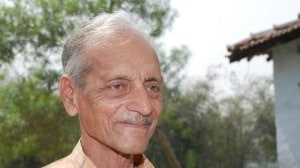Maharashtra: Statute panel says no to use of party symbols, names & photos of leaders in student council polls
THE STUDENT Council elections, which will make a comeback to university campuses this year after almost two decades, will be apolitical in nature, according to the recommendations of the statute committee.
 Sources in the department of higher and technical education said that the government is intent on limiting political interference in college campuses to avoid any violence on campuses. (Representational Image)
Sources in the department of higher and technical education said that the government is intent on limiting political interference in college campuses to avoid any violence on campuses. (Representational Image)
THE STUDENT Council elections, which will make a comeback to university campuses this year after almost two decades, will be apolitical in nature, according to the recommendations of the statute committee. In the statutes for student elections, as proposed by the committee to the state government, contesting students will not be allowed to use symbols of political parties, names and influence of politicians for campaigning on campus, said R S Mali, chairperson of the statutes committee.
“Contesting students can have political affiliations at an individual level but they can’t use that influence during campaigning. We have proposed that use of symbols of political parties or pictures of political personalities will not be allowed,” said Mali.
Sources in the department of higher and technical education said that the government is intent on limiting political interference in college campuses to avoid any violence on campuses. “Given the volatile political environment in campuses across the country, it would be risky to allow the involvement of student wings of political parties in the elections. The elections should not disrupt academic activities, which is the focus of any educational institute,” said a senior government official.
Student elections have been banned in colleges since 1994 following the murder of an NSUI candidate in 1989.
However, last year the cabinet approved an amendment to the Maharashtra Public Universities Act reintroducing student elections at college and university levels to encourage student participation in decision-making. The amended Act came into force on March 1, 2017 but statutes for student council elections are awaited. State Education Minister Vinod Tawde told The Indian Express that elections will begin from the new academic session in June this year.
The statutes were expected last year but frequent clashes between student political parties in educational institutes in several parts of the country had made the government wary of reintroducing the student elections. The statutes committee, set up by the government, was deliberating measures to increase transparency in the election process and keep violence at bay.
The committee has made its proposal to the state education department, which is yet to vet it. The committee has specified that only those students who pass in all subjects in the first attempt are eligible for contesting elections. “The student contesting the election should not have any backlog and have a regular attendance. Re-admitted students will not be allowed,” said Mali.
Four students — one for the position of president, one for the position of secretary, one from reserved category and one woman candidate — will be elected from each college. These elected representatives will form a collegium. Only the collegium will elect the student representatives to the university senate. “We will not have open elections for university senate. Only the collegium can elect representatives from among themselves,” said a member of the committee.
Earlier, principals, too, had been reluctant about holding the elections and asked for a government machinery to conduct elections on campuses. However, the committee has proposed that the principals be made responsible for elections. “It is the responsibility of the principals to hold student elections. We have provided guidelines and a model code of conduct for the principals to follow,” said Mali.
priyanka.sahoo@expressindia.com





- 01
- 02
- 03
- 04
- 05


























